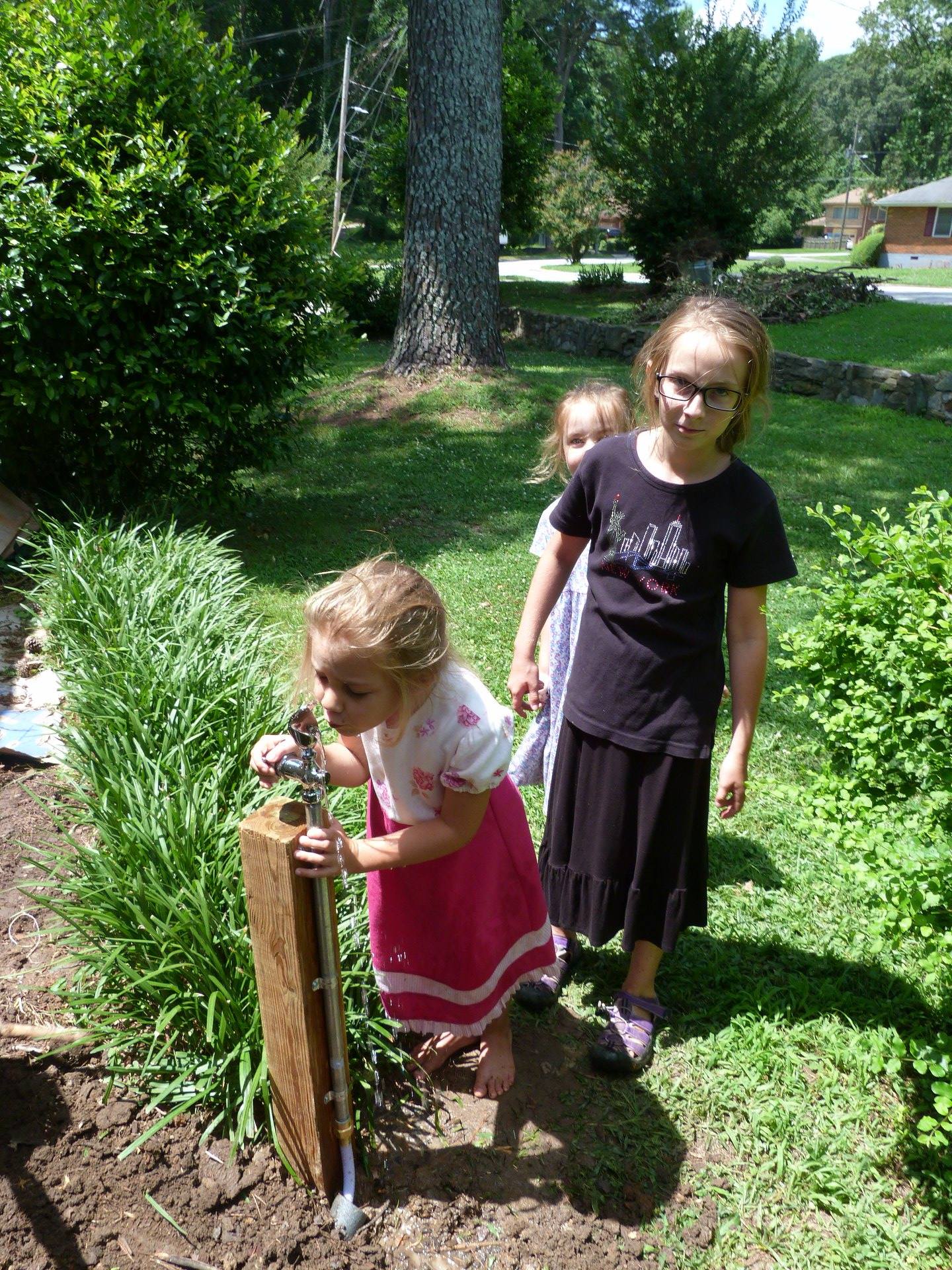The twenty-first century is a spectacularly bad time to schedule a midlife crisis, particularly if you are by nature skeptical. If you don’t know what I mean, read on.

As I hover on the brink of my mid-forties, I find that there are a lot of things I don’t know. Take life decisions, for example. I never did know what I wanted to be when I grew up, and I’m still not sure sometimes. I don’t know how to sort out the mixture of divine guidance and human fallibility in my various moves, including my move to the United States in 2003 and our move to Atlanta in 2016. I don’t know which of my past actions to count as mistakes and which to read as good decisions, all things considered. I often don’t know the best way to make right the things I do know I’ve done wrong.

Looking ahead, I often don’t know the best ways to help my wife, my daughters, and myself grow into the persons God designed us to be. I don’t know how long we should keep participating in the church we’re going to now or what church effort it would be wise to plug into after that. I don’t know where finances will come from for our senior years, and I don’t know how I could adjust current financial choices to better prepare for those years—or if God’s preferred preparation is to simply be generous now. Speaking of generosity, I don’t know how to help most of the people around me who need help, partly because I am more aware than ever that I, too, need help.
I don’t know.
I also don’t know a lot about God and the Bible. Although it makes best sense to me, I don’t know for sure that creation happened in six 24-hour days—or why I first typed “six 14-hour days”! I don’t know for sure what Jesus meant by “except for fornication” when he taught about divorce. I don’t know whether John 7:53-8:11 was originally part of John’s Gospel or not, or exactly how we should think about the borders of the biblical canon. I don’t know why God elects to save some and not others, nor how his election interacts with the human volition of potential missionaries and potential converts. I don’t know why he allowed me to hear the gospel while many others haven’t.

I don’t know exactly how gender roles should be expressed in the home and the church. I don’t know exactly how the children of believers fit within the church, or how we best help them transition to make the faith their own. I don’t know why some Christians experience miraculous manifestations more often than the rest of us. I don’t know how, living right here in Atlanta, to best help Jesus’ church become a place where differing gifts, cultures, ethnicities, and more live together in “righteousness and peace and joy in the Holy Spirit” (Rom. 14:17).
I don’t know.
Oh, I have some reasonably-informed working positions on some of those questions. Most of them don’t exactly leave me troubled—at least not most of them most of the time.
But I don’t know. And I don’t always know how to respond to people who think that they know, and that I should, too.
Worse, I live in a time when it is perhaps harder than ever to know anything for sure. We have access to more knowledge than ever, yes, but we also have access to more articulate counter-arguments than ever. No matter what hard-won conclusion you think you have reached, a simple “Google” will take you to someone who is equally confident you are completely wrong, with mounds of evidence that supposedly defends their conclusions.

AI (artificial intelligence) experts warn that we are on the brink of a new era when it will be nearly impossible to tell authentic video footage from computer-generated video. Simply by taking a photo or two from your Facebook feed and some random audio of your voice, they (who?) will be able to “record” a video of “you” saying anything they want. If it is hard to be sure about anything now, just wait a decade. It will be even harder.
I don’t know. And I won’t know the answers to many of my questions, either. That, too, is becoming clearer as the years pass and my limitations press in.
Is it possible to truly know anything? Or do we now know (!) that it is arrogant to say “I know”? Is it actually a form of oppression to expect others to know anything and to hold them accountable for their ignorance or uncertainty?
The apostle Paul didn’t seem to think so. As I’m reading through 1 Corinthians, I’m noticing a recurring question: οὐκ οἴδατε; Or, if you prefer English to Greek: “Don’t you know?”
Actually, I suspect Paul’s tone could sometimes best be translated with an exclamation mark added: “Don’t you know?!”
Paul expected his readers to know a lot of things. He didn’t expect them to know everything, for he knew he possessed special apostolic revelation, revelation that could be passed on only through a long process of teaching. But he did seem to think there are certain facts that any follower of Jesus should know.

In a day when we find it hard to be certain about anything, we need Paul to clear the fog and put some spine in our backs. Yes, there are times when it’s okay to say “We know.” Apparently it’s even okay to say “Don’t you know?” from time to time. After all, when you can say “I know” about the most important things in life, then you can live with only partial knowledge about the rest, right?
What about you? Do you know anything?
Here, for our mutual reflection, are all the passages in Paul’s letters where he asks the question: οὐκ οἴδατε; Don’t you know? Since I can’t generate a video of Paul asking you these questions, you get to read them. In a world of uncertainty, here are a few of the things you can know—and some things you should do based on that knowledge:
Οὐκ Οἴδατε; Don’t You Know?
…that if you present yourselves to anyone as obedient slaves, you are slaves of the one whom you obey, either of sin, which leads to death, or of obedience, which leads to righteousness? (Rom. 6:16)
…what the Scripture says of Elijah, how he appeals to God against Israel? “Lord, they have killed your prophets, they have demolished your altars, and I alone am left, and they seek my life.” But what is God’s reply to him? “I have kept for myself seven thousand men who have not bowed the knee to Baal.” So too at the present time there is a remnant, chosen by grace. (Rom. 11:2-5)
…that you [plural] are God’s temple and that God’s Spirit dwells in you? If anyone destroys God’s temple, God will destroy him. For God’s temple is holy, and you are that temple. (1 Cor. 3:16-17)
…that a little leaven leavens the whole lump? Cleanse out the old leaven that you may be a new lump, as you really are unleavened. For Christ, our Passover lamb, has been sacrificed. (1 Cor. 5:6-7)
…that the saints will judge the world? And if the world is to be judged by you, are you incompetent to try trivial cases? (1 Cor. 6:2)
…that we are to judge angels? How much more, then, matters pertaining to this life! So if you have such cases, why do you lay them before those who have no standing in the church? I say this to your shame. Can it be that there is no one among you wise enough to settle a dispute between the brothers, but brother goes to law against brother, and that before unbelievers? (1 Cor. 6:3-6)
…that the unrighteous will not inherit the kingdom of God? Do not be deceived: neither the sexually immoral, nor idolaters, nor adulterers, nor men who practice homosexuality, nor thieves, nor the greedy, nor drunkards, nor revilers, nor swindlers will inherit the kingdom of God. (1 Cor. 6:9-10)
…that your bodies are members of Christ? Shall I then take the members of Christ and make them members of a prostitute? Never! (1 Cor. 6:15)
…that he who is joined to a prostitute becomes one body with her? For, as it is written, “The two will become one flesh.” But he who is joined to the Lord becomes one spirit with him. (1 Cor. 6:16-17)
…that your body is a temple of the Holy Spirit within you, whom you have from God? You are not your own, for you were bought with a price. So glorify God in your body. (1 Cor. 6:19-20)
…that those who are employed in the temple service get their food from the temple, and those who serve at the altar share in the sacrificial offerings? In the same way, the Lord commanded that those who proclaim the gospel should get their living by the gospel. (1 Cor. 9:13-14)
…that in a race all the runners run, but only one receives the prize? So run that you may obtain it. (1 Cor. 9:24)
James uses the same words to begin this question:
…that friendship with the world is enmity with God? Therefore whoever wishes to be a friend of the world makes himself an enemy of God. (James 4:4)
And Paul uses a parallel expression (ἀγνοεῖτε; “Do you not-know?” or “Are you ignorant?”) in these verses:
…that all of us who have been baptized into Christ Jesus were baptized into his death? We were buried therefore with him by baptism into death, in order that, just as Christ was raised from the dead by the glory of the Father, we too might walk in newness of life. (Rom. 6:3-4)
…that the law is binding on a person only as long as he lives? For a married woman is bound by law to her husband while he lives, but if her husband dies she is released from the law of marriage. Accordingly, she will be called an adulteress if she lives with another man while her husband is alive. But if her husband dies, she is free from that law, and if she marries another man she is not an adulteress. Likewise, my brothers, you also have died to the law through the body of Christ, so that you may belong to another, to him who has been raised from the dead, in order that we may bear fruit for God. (Rom. 7:1-4)
What do you know? What things do you consider knowable? How do you talk with others about these things? If you know a thing or two, share it in the comments below. And thanks for reading!
If you want to support more writing like this, please leave a gift:


